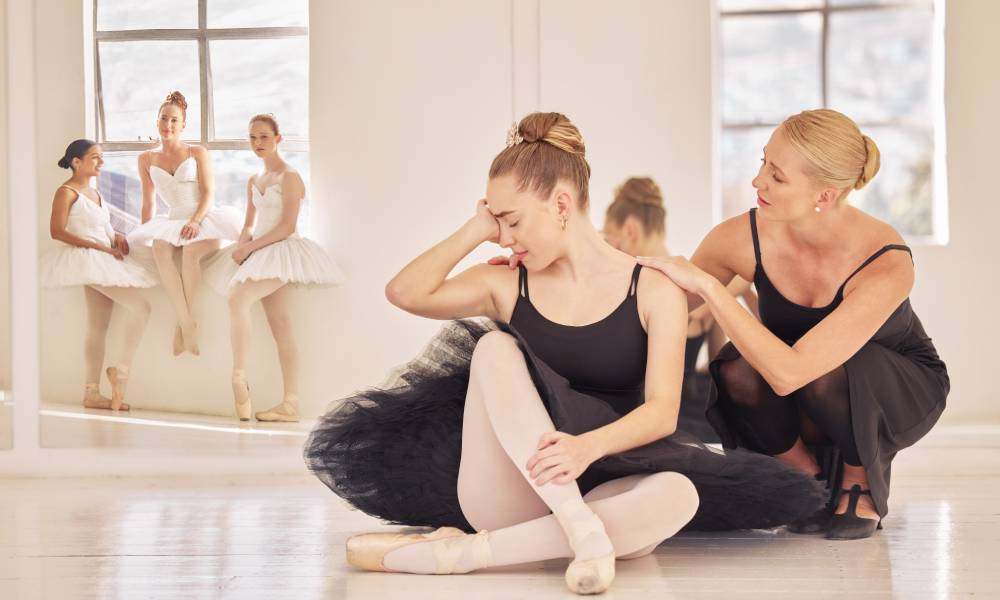A dance coach can be the best thing ever for your training and growth. Unfortunately, some coaches cross the line, making the experience more harmful than helpful. If you feel unsafe or simply uncomfortable with your current dance coach, read on. We’ll go over the signs you might be working with an abusive individual and what you can do about it.
You Receive Consistently Negative Feedback
Constructive criticism is essential for growth, so learning how to deal with criticism as a dancer is important. But when does criticism turn harmful?
If your coach points out only what’s wrong without highlighting any positives, that’s a red flag. Abusive coaches tend to undermine their dancers’ confidence, focusing solely on mistakes and never acknowledging progress or effort. This constant negativity can crush your spirit and diminish your love for dance.
They Have Excessive Control Over Personal Life
A good coach understands the balance between your dance life and personal life. However, an abusive coach might try to control more than just your training schedule.
They could dictate your diet, friendships, and even activities outside of dance. This level of control is unhealthy and shows a lack of respect for your autonomy.
They Embarrass You Publicly
Critiquing in private shows respect, but an abusive coach might choose to call out errors in front of your peers. Public humiliation tactics can lead to feelings of shame and embarrassment, creating a toxic environment. This behavior is intended to intimidate and suppress rather than uplift and motivate.
Actions You Can Take
Does your coach do any of these things? Recognizing the signs is the first step; taking action is the next.
Start by setting boundaries and communicating openly with your coach. If things don’t improve, speak to other dancers or trusted adults for support.
If things are really bad, you could sue. Verbal assault and other tactics of abusive coaches often count as personal injury. You might even have sustained a physical injury from overly intense training. A lawsuit should be a last resort, but knowing what to expect during a personal injury lawsuit can prepare you for this potential outcome.
In the meantime, look for a new coach who fosters a positive and motivational atmosphere. Your passion for dance should come with respect and encouragement, not fear and disrespect.
Final Thoughts
Abusive coaching relationships are an unfortunate reality of professional dance. Being aware of the signs you’re working with an abusive dance coach is important for protecting your health and sanity as a dancer. Always remember that a good coach should uplift you, not tear you down.





